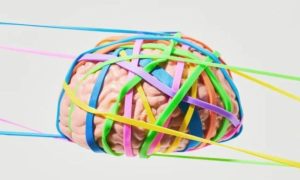25-10-2023
A heart attack is a life-altering event that affects not only the physical body but also the intricate workings of the mind. While medical science has made remarkable treads in understanding the physiological aspects of heart attacks, the psychological dimension remains a topic of immense importance. This article delves into the intricate relationship between the psychological state of an individual and the occurrence, recovery, and prevention of heart attacks.
1 Stress: The Silent Aggressor
Chronic stress, often a result of our fast-paced lifestyles, can significantly contribute to heart attacks. The body’s response to stress includes the release of stress hormones like cortisol, which, when persistent, can damage the cardiovascular system. Stress management techniques such as meditation, yoga, and therapy can play a pivotal role in reducing the risk of heart attacks.
2 Emotions and Heart Health
Emotions have a profound impact on the heart. Chronic negative emotions like anger, hostility, and depression have been associated with an increased risk of heart disease. These emotions can lead to unhealthy coping mechanisms such as smoking, overeating, or excessive alcohol consumption, further exacerbating the risk. Addressing emotional well-being through therapy, support groups, and positive lifestyle changes can significantly improve heart health.
3.Anxiety: The Racing Heart
Anxiety disorders can lead to increased heart rate and blood pressure, putting extra strain on the heart. The constant feeling of apprehension and worry can trigger the body’s fight-or-flight response, releasing stress hormones that, over time, weaken the heart. Cognitive-behavioural therapy and relaxation techniques can aid in managing anxiety, thereby safeguarding the heart’s health.
4.Personality Traits and Heart Health
Certain personality traits, such as Type A behaviour pattern characterized by competitiveness, impatience, and hostility, have been linked to a higher risk of heart disease. It’s not just the traits themselves but how individuals cope with them that matters. Developing emotional intelligence and effective coping strategies can mitigate the negative impact of these personality traits on heart health.
5 Post-Traumatic Stress Disorder (PTSD)
Individuals who have experienced traumatic events might develop PTSD, a condition that can severely affect heart health. The constant state of hyperarousal in PTSD can lead to increased heart rate and blood pressure. Moreover, individuals with PTSD might engage in behaviours like substance abuse as a way to cope, further risking their cardiovascular health. Integrative therapies, support networks, and professional counselling are crucial for individuals dealing with PTSD to manage their heart health effectively.
Understanding the psychological aspects of heart attacks is not just about acknowledging their existence but actively integrating mental health into overall healthcare strategies. Mental well-being is not merely the absence of mental illnesses; it’s a state of flourishing where an individual can cope with stress, build meaningful relationships, work productively, and contribute to their community. By fostering mental and emotional resilience, we can build a society where heart attacks are not just treated but prevented at their very roots, in the intricate landscapes of the human mind.

















More Stories
Exploring the Elasticity of Your Brain: Understanding Neuroplasticity
The Impact of Social Media on Mental Health: Finding Balance
International Day of Happiness!